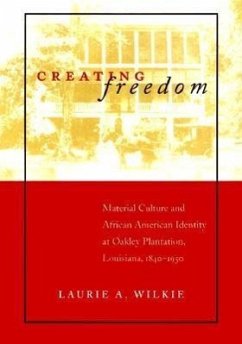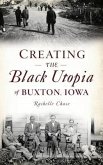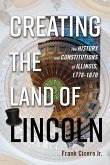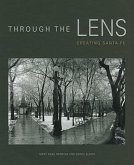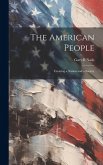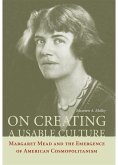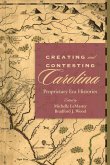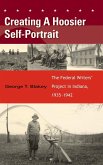Historians' conception of plantation life in the American South, both post- and antebellum, derives almost exclusively from the written record, hence mainly from the white owners' perspectives. In Creating Freedom, historical archaeologist Laurie Wilkie pulls the half-opened curtain wider by seeking out the experiences of the majority of people who made their home on plantations: the African American laborers. Specifically, Wilkie examines the lives of four black families who lived at Oakley Plantation in south Louisiana's West Feliciana Parish over the course of one hundred years. Using an innovative blend of archaeological evidence and oral interviews, as well as written documents, she builds a composite of their daily existence that is at once riveting and humanizing in its detail and invaluable in its broader applications. A two-year excavation of Oakley yielded for Wilkie an abundance of materials from sites linked to the households of the enslaved Gardiners, two generations of the Freemans, and the Scotts, all of whom held positions as house servants or wage laborers. In addition, artifacts from the original planter house of the Matthews family and the planter kitchen were recovered. In the fragments of toys, tools, clothing, jewelry, food containers, writing instruments, medicinal objects, and magical/spiritual artifacts, the author locates clues to the rituals and experiences from which the African Americans shaped identities of gender, class, ethnicity, and race, retaining their ties to a cultural past while renegotiating their identity as free persons.
Hinweis: Dieser Artikel kann nur an eine deutsche Lieferadresse ausgeliefert werden.
Hinweis: Dieser Artikel kann nur an eine deutsche Lieferadresse ausgeliefert werden.

